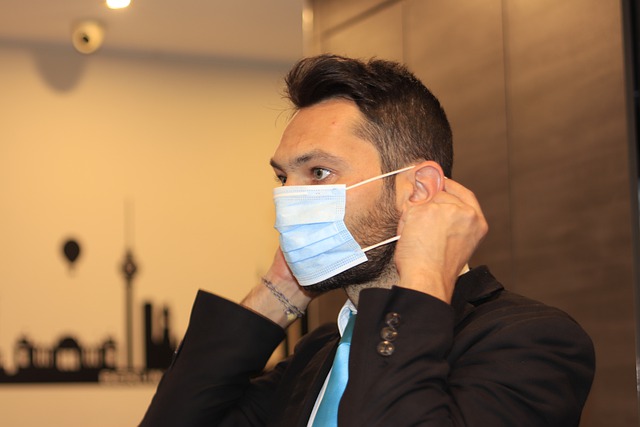YMA Financial has a business consulting tip you can use right now!
People should have a COVID-19 Prevention Program (CPP) that involves safety processes to decrease the risk of exposure to a recognized pandemic. This program is needed additionally to an Injury and Illness Prevention Program (IIPP). With only some exceptions, all employers should implement a COVID-19 Prevention Program pursuant to an Emergency Temporary Standard for COVID-19.
Cal and OSHA have developed this program to help all the employers with making their perfect CPP that is tailored to their workplace. Employers aren’t needed to use this program. Employers can make their own program or utilize another CCP template. Employers can also make a written COVID-19 Prevention Program (CPP) by incorporating elements of this program into their existing Injury and Illness Prevention Program (IIPP) if wanted. Cal and OSHA encourage employers to engage with workers in the design, implementation, and evolution of their CPP.
COVID-19 prevention program ingredients
Below are the important parts of COVID-19 prevention program.
Wash your hands often and carefully
Use warm water, soap, and rub your hands for a minimum of 20 sec. Work the lather to wrists, between fingers, and under the fingernails. You can use antibacterial and antiviral soap. Use hand sanitizer when you are not able to wash the hands appropriately. Rewash your hands many times a day, particularly after touching anything, involving your phone and laptop.
Avoid touching your face
SARS-CoV-2 may live on a few surfaces for up to 3 days. You can get this coronavirus on the hands if you will touch a surface like:
- Gas pump handle
- Your cell phone
- A doorknob
Avoid touching any part of the face and head, involving your mouth, nose, and eyes. Avoid biting your fingernails. It can give coronavirus a chance to go from your hands into the body.
Stop shaking hands and hugging people for now
Likewise, avoid touching other people. Skin-to-skin contact may transmit SARS-CoV-2 from one person to another.
Do not share personal items
Don’t share personal items like:
- Phones
- Makeup
- Combs
It is essential not to share eating utensils and straws. Teach kids to identify their reusable cups, straw, as well as other dishes for their own use only.
Your mail can come out of quarantine.
Mail doesn’t pose a huge risk and placing your mail aside for many days before opening it’s unnecessary. Once again, your great bet is washing your hands after handling anything you bring in from outside.
You can invite cleaners back into your home.
If you have asked cleaners to come back, request that they wear masks the whole time they’re in the house. Leave the home though the cleaners are present if you can; otherwise, move to a different part of the home and close the door. Open windows to raise airflow through the home.
During coughing or sneezing, cover the mouth and nose
SARS-CoV-2 is discovered in higher amounts in the nose/mouth. This means it may be carried by air droplets to other people when you sneeze, cough, talk. It may land on difficult surfaces and stay there for up to 72 hours. Use a tissue or sneeze into the elbow for keeping your hands as clean as possible. Wash your hands carefully after you sneeze and cough.
Clean and disinfect surfaces
If you have a large commercial building, consider hiring a professional nationwide commercial cleaning company.
Use alcohol-based disinfectants to clean tough surfaces in the house like:
- Countertops
- Door handles
- Furniture
- Toys
- Clean phone, laptop, and anything else you use regularly many times a day.
- Disinfect places after you bring groceries or packages into the house.
- Use white vinegar and hydrogen peroxide solutions for cleaning in between disinfecting surfaces.
Take physical distancing seriously
If you are carrying the SARS-CoV-2 virus, it will be found in higher amounts in spit (sputum). This may occur even if you do not have symptoms. Physical distancing means staying house and working remotely when possible. If you must go out for necessities, keep a distance of six feet (2 m) from other people. You may transmit the virus by speaking to somebody in close contact with you.
Do not gather in groups
Being in a group or gathering makes it more probable that you will be in close contact with somebody. This involves avoiding all religious areas of worship, as you can have to sit or stand too close to another congregant. It involves not congregating at parks and beaches.
Avoid eating or drinking in public places
Now isn’t the time to go out to eat. This means avoiding restaurants, bars, coffee shops, and other eateries. The virus may be transmitted via cups, food, utensils, and dishes. It can be temporarily airborne from other people in the venue. You may get delivery or takeaway food. Select foods that are thoroughly cooked and may be reheated. High heat helps to kill coronaviruses. This means it can be great to avoid cold foods from restaurants and all food from buffets and open salad bars.

